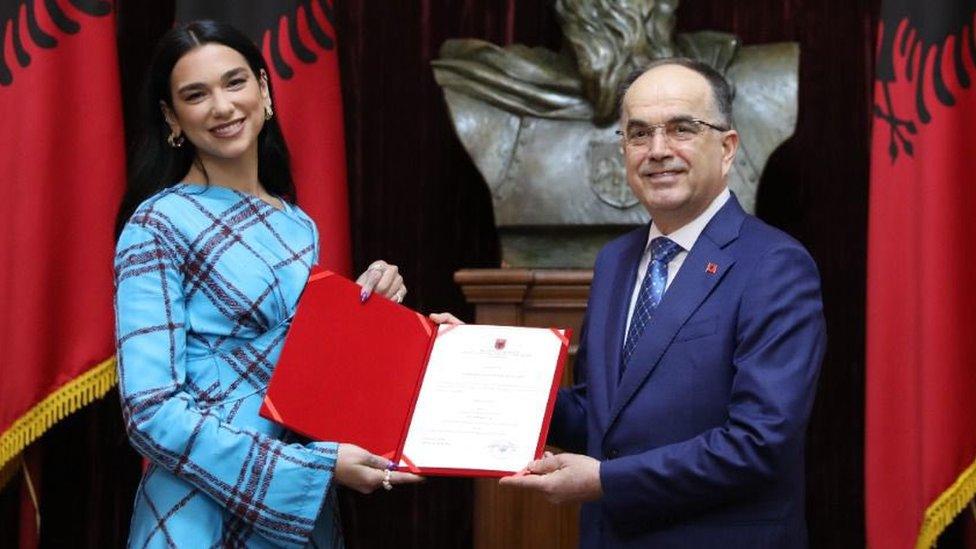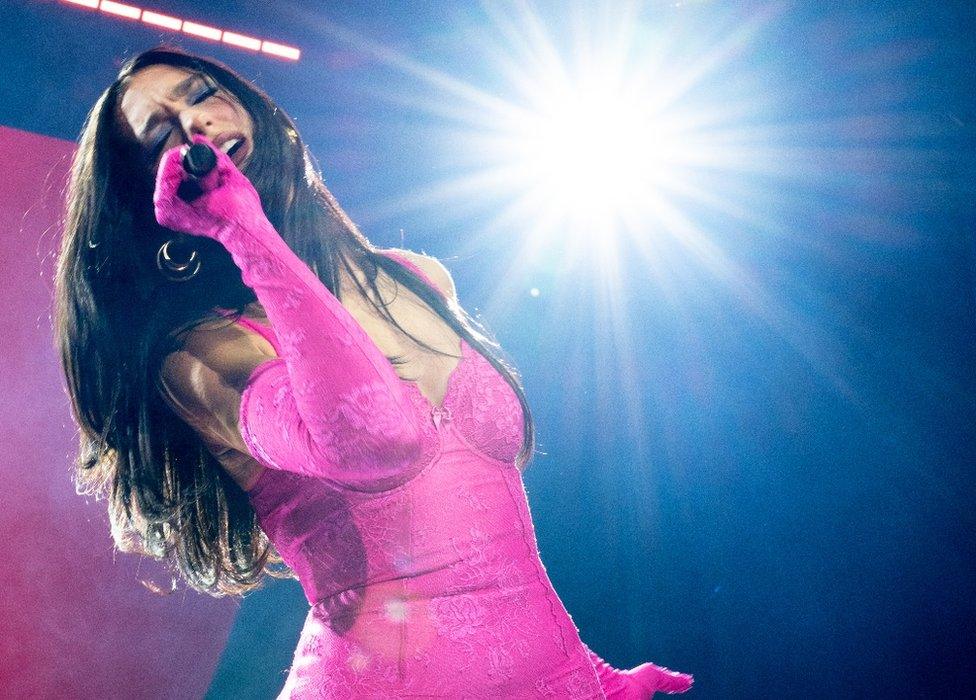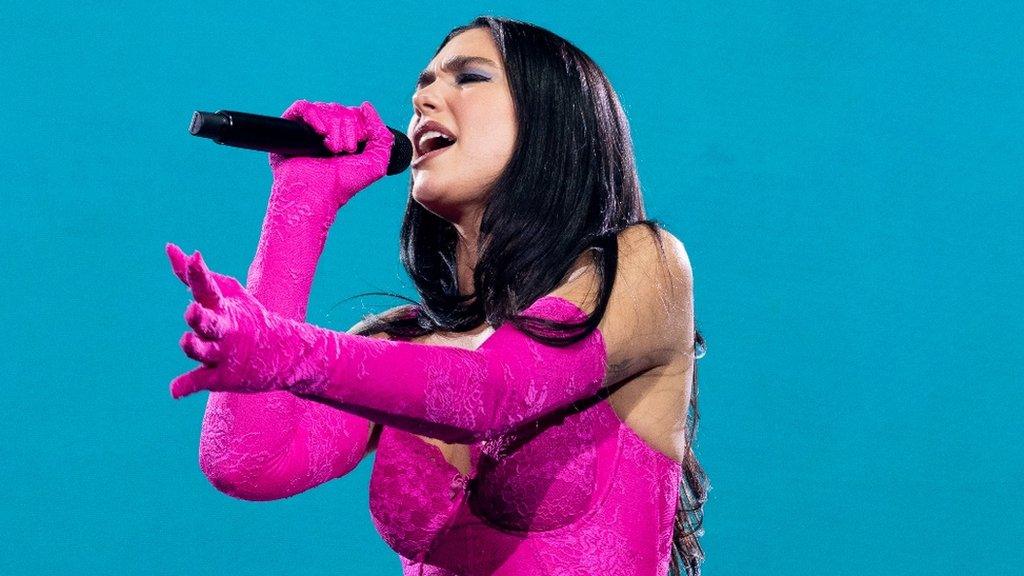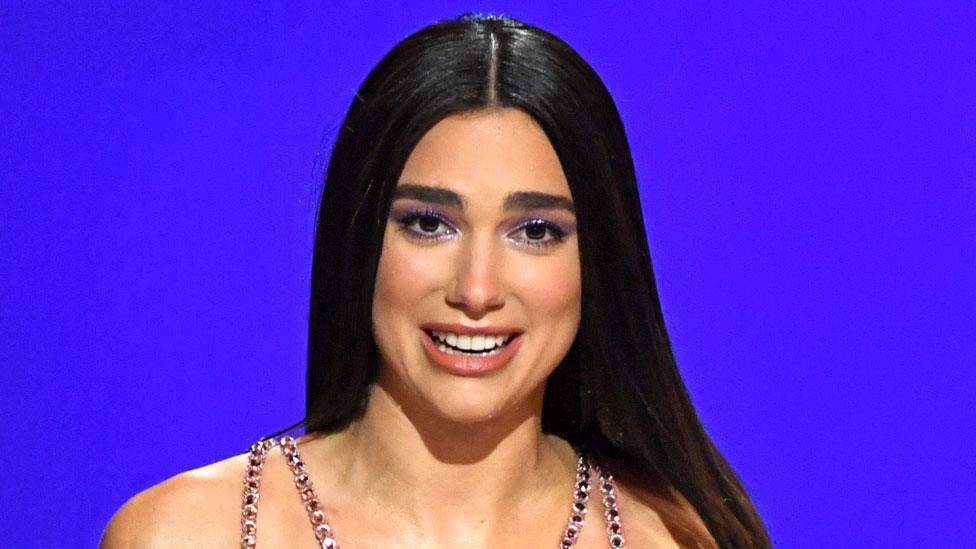Dua Lipa is granted Albanian citizenship
- Published

Dua Lipa and Albanian president Bajram Begaj
Pop star Dua Lipa has been granted Albanian citizenship for promoting the country through her music and fame.
The star was born in London in 1995 to Kosovan-Albanian parents, and briefly returned to the region as a teenager.
Albanian president Bajram Begaj said Lipa had made the country "proud with her global career and engagement in important social causes".
The New Rules singer said it was "an indescribable great joy" to accept citizenship.
After posing for photos with President Begaj at Tirana City Hall, Lipa took an oath of citizenship, gave her fingerprints and signed an application form for an identity card and passport.
Allow X content?
This article contains content provided by X. We ask for your permission before anything is loaded, as they may be using cookies and other technologies. You may want to read X’s cookie policy, external and privacy policy, external before accepting. To view this content choose ‘accept and continue’.
Lipa's parents left Kosovo in about 1992, as the tensions that eventually led to the 1998-9 war began to surface.
The singer's grandfather, Seit Lipa, was head of the Institute for the History of Kosovo when it was targeted for closure by Serbian law in 1992, a move that a special rapporteur for the United Nations later called a sign of burgeoning human rights violations.
Settling in Camden, the family raised Lipa with an awareness of her culture, with Albanian remaining her first language even as she fell in love with Western pop stars like Pink and Nelly Furtado.
But her parents always intended to return home - which they did after Lipa left primary school at the age of 11.
"It took me a really long time to find my feet there," she told NPR earlier this year., external "It's interesting going into that at 11 years old, but I think I wouldn't change it for the world because it really helped me become who I am".
Eventually, the singer decided to return to London to pursue her dreams of a singing career, living with a friend of the family until she was 16.
"I guess it was scary for [my parents]", she told BBC News in 2016. "But I was constantly on the phone to them: 'Ok, I've woken up. OK, I'm at school. OK, I'm back at home.'
"For them it must have been a rollercoaster of emotions. For me, it was the best time of my life."

The star will wrap up her Future Nostalgia World Tour in Albania this week
Since finding fame with hits like New Rules, Be The One, Don't Start Now and Levitating, the singer has made a point of honouring her heritage.
In 2018, she founded the Sunny Hill Festival with her father, raising money for the Sunny Hill Foundation, which helps those who are vulnerable and in need.
She will wrap up her world tour in the Albanian capital, Tirana, this week, with a show marking the 110th anniversary of the country's independence from the Ottoman Empire.
However, her support for Albania sparked a backlash in 2020 after she posted a map appearing to show Albania, Kosovo and parts of neighbouring Balkan countries as one nation, with a caption suggesting Albanians are indigenous to the area.
The controversial image is associated with ultra-nationalists who believe Albania's borders should be expanded.
The pop star quickly moved to quash criticism, saying her post "was never meant to incite any hate".
"It makes me sad and angry that my post has been wilfully misinterpreted by some groups and individuals who promote ethnic separatism, something I completely reject," she wrote in a statement.
"We all deserve to be proud of our ethnicity and where we are from. I simply want my country to be represented on a map and to be able to speak with pride and joy about my Albanian roots and my mother country."
- Published16 April 2022

- Published14 November 2022

- Published9 July 2021
